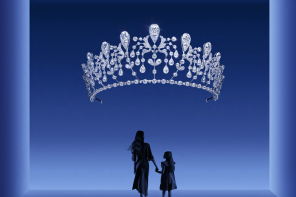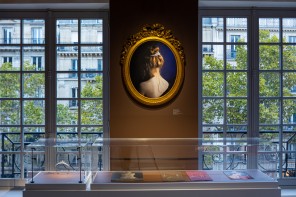Saïda Jawad is not just an actress—she’s a storyteller who dares to break boundaries on and off the screen. With a career spanning Cannes red carpets and a passion for empowering others, Saïda’s journey reflects bold creativity and a deep commitment to authenticity. Beyond acting, she dreams of creating a sanctuary for abandoned children, blending her love for art, spirituality, and the role of women in Franco-Maghrebian culture. Her story is one of resilience, compassion, and the pursuit of peace.
How did your journey in acting begin?
I started acting at just 14 in the North of France, far from Paris. At the time, I was fully immersed in theater and dreamed of continuing on that path. However, when I moved to Paris, opportunities in television and cinema came my way instead. My first audition was for a daily series on France 2.
What was the series?
Cap des Pins. I was originally cast for just one episode as Marion, but that small role quickly turned into a two-year contract. Shortly after, I landed a role in a film by Moroccan director Abdelkader Lagtaâ—a co-production between France, Canada, and Morocco. I played Fifi, a young prostitute in Casablanca. Filming my first movie in Morocco was an unforgettable experience.
How was the film received?
It was a success! Two years later, when I returned to Morocco, I saw posters of the film everywhere, and people even recognized me on the streets. Abdelkader Lagtaâ is a highly respected director in Morocco with an impressive body of work. That film was a pivotal moment in my career. Afterward, I returned to France and began working on unitaires—feature-length TV films—and more cinema projects.
You portrayed Rachida Dati in La Conquête. How did you approach the role?
It was challenging yet deeply rewarding. I had to study her closely—her movements, speech, and wardrobe—to capture her authenticity. “I watched everything I could find—videos, interviews, photos,” she recalls. “Dati is an icon who has inspired many, especially in the North African community.”
The film underscores the cultural impact of figures like Dati, with Jawad expressing pride in portraying a woman of Moroccan and Algerian heritage who rose to such prominence.
After focusing on TV and film, did the stage ever call you back?
Absolutely! Around 2007 or 2008, I felt an undeniable pull back to the theater. That’s when I wrote my play, Monsieur Accordéon.
Why was the accordion such an inspiration for your play?
The accordion holds a special place in my heart. My father encouraged me to play it as a way to better integrate into society. He admired a family whose daughter played the accordion, and since it’s so popular in the North where I grew up, it felt like the perfect choice. While my brothers played football to stay out of trouble, I immersed myself in music, starting at just seven. I even competed in Belgium every year—and won trophies!
That’s incredible! So, Monsieur Accordéon is a reflection of your life?
Absolutely. It’s an autobiographical play that follows my journey from childhood to my move to Paris at 21 to pursue acting. The play premiered at the Splendid Theater in Paris, ran for four months, and then had a sold-out run in Avignon before hitting the road on tour.
What was it like performing Monsieur Accordéon?
Unforgettable. But before Monsieur Accordéon, I already had a wealth of theater experience. I toured with a company in the North, performing classics like Antigone by Sophocles. Jean Anouilh’s adaptation of Antigone is one of my personal favorites. It’s a deeply moving story of sacrifice and resilience.
How did you first get into screenwriting?
Surprisingly, it all started with Monsieur Accordéon. A producer loved the play and approached me to write a TV film. At first, I hesitated since I had no screenwriting experience. But during a vacation, I wrote three pages, and the channel loved it. That project became Tout Est Bon Dans Le Cochon (Everything is Good in the Pig), which aired on France 3. It’s a social comedy about a Moroccan woman who takes a job at a butcher shop, only to realize it conflicts with her faith.
Quite the title!
It’s based on an old French expression. The film’s success opened new doors, leading to another project, Super Lola, a comedy for France 2, which you can now find on YouTube.
Have you worked on any films for Arab countries?
Not yet, but I’d love to. I’ve attended the Marrakech Film Festival twice and walked the red carpet, but I always get asked, “Why don’t you make films in Morocco?” My answer? “Why don’t Moroccan directors call me?” I’m ready and eager! There’s this misconception that actors
Do you have any other scripts planned for the future?
One project especially close to my heart is The Silence of Words, a film about illiteracy. I’m actively working to bring it to life because I believe it’s a vital topic with the power to unite people
You have a new film coming out soon, right?
Yes! A film called Love is Overrated premieres in early 2025. It’s a comedy and Mourad Winter’s first film. I play a young mother married to an older man, with most of the humor coming from her son’s love life—or lack of it! It was a motherly role, which was a fun challenge
Didn’t you recently play another motherly role for television?
Yes, in Mrs. Faïza and Doctor Love, part of a short film collection for France 2. I played a 65-year-old mother—completely transformed with wrinkles, gray hair, and padded costumes. It was exciting to step into such a different character!
With more Saudi films emerging, how do you view the visibility of films from the region, and would you be open to acting or working on a script from Egypt, Qatar, or Saudi Arabia?
There’s still not enough visibility. We rarely hear about films from Saudi Arabia, Qatar, or Morocco—Bollywood dominates. To experience our films, you need to attend specific festivals or know the right people, which is a shame. I’m absolutely open to acting in or contributing to projects from the Middle East. As an actor, it’s important to explore new cultures and share experiences. At this stage of my career, I’m all for openness and learning from others.
So many exciting projects! What’s your dream?
My dream is to build an orphanage on an island for neglected children, with my house nearby where I can write books. I long for peace, away from society, surrounded by nature. But to make this dream a reality, I must work, take on roles, and write screenplays to fund the project myself. I’ll keep pushing forward and trust that, if it’s meant to be, it will happen. My goal is simple: to help children and find peace
How has spirituality shaped your outlook on life and your creative work?
I love walking in the forest—just me, the trees, birds, and silence. It’s my way of escaping the noise of life. After each walk, I hug a tree and silently ask it for strength and wisdom. It’s a simple act that grounds me and brings peace.
Spirituality and reflection have taught me that inner peace matters most in a world obsessed with chasing more. It took years of reading, learning, and quiet moments to understand this.
Now, I embrace calm and focus on what truly matters—art, writing, and self-discovery. I’ve found a part of myself I didn’t know existed, and it makes me truly happy.
Text by Suna Ahmed




